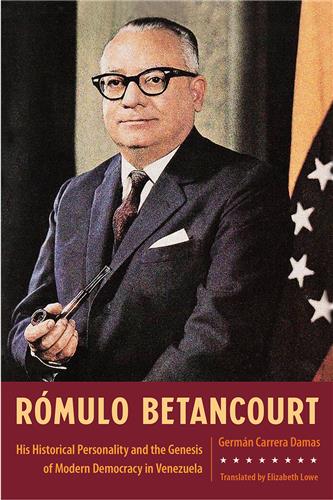Slave Families and the Hato Economy in Puerto Rico
David M. Stark
Paper: $24.95
"A welcome addition to the scholarship on slavery in the Americas, deepening our knowledge of seventeenth- and eighteenth-century Puerto Rico and the Western Caribbean."—American Historical Review
"Stark use[s] new archival sources to enlarge understanding of the range of labor, family, and production systems in the colonial Caribbean."—Choice
"Breaks new ground. . . . Compel[s] a revision of prevailing wisdom about slavery in the Caribbean. . . . A major contribution to the study of slave demography, slave families, and comparative slavery generally."—Journal of Interdisciplinary History
"Focuses on the extent to which enslaved men and women married and established families in accordance with the Catholic Church prior to the reemergence of labor-intensive, commercial agriculture."—The Americas
“This book makes a thoroughly original contribution to scholarship on a time and place that are both understudied and central to our understanding of Caribbean slavery beyond the sugar plantation. . . . It constitutes a major addition to Caribbean history and the history of slavery more generally and will be of lasting importance to scholars in these fields.”—Hispanic American Historical Review
"Deftly uses the available parish registers to document the stages of the coming of African men and women to Puerto Rico in the eighteenth century and reveals patterns of family formation and bonds of solidarity among the African slaves and with the rest of society."—Fernando Pico, author of Puerto Rico Remembered
"An exceptionally well researched, highly original, cogently argued and engagingly written work."—Franklin W. Knight, coeditor of Contemporary Caribbean Cultures and Societies in a Global Context
"A welcome contribution to the history of eighteenth-century Puerto Rico and an important model for anyone using sacramental records to study slave life in colonial Latin America."—David Wheat, Michigan State University
Scholarship on slavery in the Caribbean frequently emphasizes sugar and tobacco production, but this unique work illustrates the importance of the region’s hato economy—a combination of livestock ranching, foodstuff cultivation, and timber harvesting—on the living patterns among slave communities.
David Stark makes use of extensive Catholic parish records to provide a comprehensive examination of slavery in Puerto Rico and across the Spanish Caribbean. He reconstructs slave families to examine incidences of marriage, as well as birth and death rates. The result are never-before-analyzed details on how many enslaved Africans came to Puerto Rico, where they came from, and how their populations grew through natural increase.
Stark convincingly argues that when animal husbandry drove much of the island’s economy, slavery was less harsh than in better-known plantation regimes geared toward crop cultivation. Slaves in the hato economy experienced more favorable conditions for family formation, relatively relaxed work regimes, higher fertility rates, and lower mortality rates.
David M. Stark is professor of history at Grand Valley State University.
- Sample Chapter(s):
- Table of Contents
- Excerpt
Stark used new archival sources to enlarge understanding of the range of labor, family, and production systems in the colonial Caribbean. . . .Recommended.
--Choice
A welcome addition to the scholarship on slavery in the Americas, deepening our knowledge of seventeenth- and eighteenth-century Puerto Rico and the western Caribbean.
--American Historical Review
Breaks new ground by using long-established methodologies. . . . Compel[s] a revision of prevailing wisdom about slavery in the Caribbean. . . . A major contribution to the study of slave demography, slave families, and comparative slavery generally.
--Journal of Interdisciplinary History
Delves into this shadowy landscape and the elusive enslaved Africans in its midst. . . . [A] major contribution to the field.
--The Americas
Underscores the significance of slavery in the island. . . . [Stark] has significantly advanced our understanding of Spanish Caribbean society in the seventeenth and eighteenth centuries.
--New West Indian Guide












